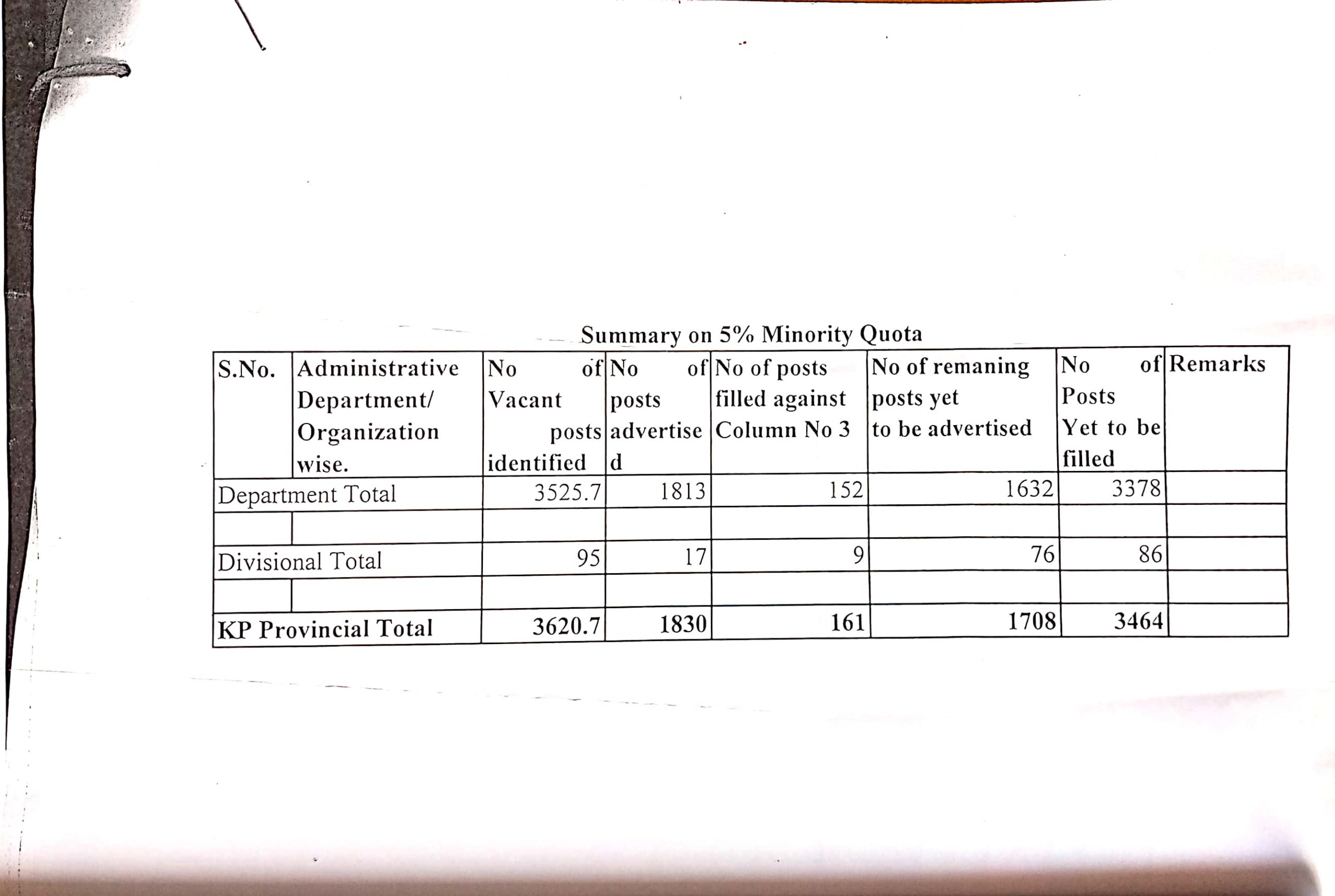Over 3,000 posts in minority quota lying vacant in KP departments
Manoj Kumar Lohana
Islamabad: As many as 3,378 posts allocated under the 5 percent minority quota arrangements are lying vacant. only 152 minority employees in posts across the KP province.
Information received by Boot Imtiaz Masih, a resident of Hyderabad, under the KP Right to Information Act 2013, indicates that as many as 3525.7 vacant posts are waiting to be filled in different administrative departments in line with the 5 percent minority job quota across the province. At the divisional level, only 17 could be advertised in a total of 95 posts identified under the minority quota are vacant.
Boot Imtiaz Masih, was impelled by an increase in the numbers of minority people eligible for work. He sent a request to the KP government regarding the 5 percent quota compliance arrangements for minorities.
The information received shows that at the departmental level there are more than 3,520 seats vacant due to various push and pull factors. About 1,630 seats are not advertised and 152 are caught up in recruitment procedures in different provincial departments.
This same situation can be observed at the divisional level where 95 seats are vacant and out of which 76 are not advertised. Only 9 seats are filled.
The situation begs the question regarding the KP government’s failure to comply with agreed quota arrangements for minorities. What are the root causes for these anomalies?

What actually Right To Information ( RTI) is?
RTI entitles citizens to request information from authorities regarding governance, policy and implementation matters which impact the rights of citizens.
RTI is commonly considered a fundamental human right and is protected by freedom of expression under international law. Pakistan is required to grant its citizens the right to freedom of expression being a member of the International Covenant for Civil and Political Rights, which addresses this issue.
Although Pakistan’s 1973 Constitution did guarantee freedom of expression, it did not identify access to information as a fundamental right. Article 19-A was added to the Pakistani Constitution by the 18th Amendment in 2010, establishing freedom of information and the right to information.
Several provincial and federal governments have passed laws to actualize this right, allowing people to access public records and exercise their right to request the information they require.
RTI laws are intended to protect the citizens’ right to information access. The establishment of laws, rules, and regulations that enable unhindered and fair access to basic rights are indicative of good governance.
A substantial correlation between successful RTI legislation and good governance has been seen internationally. RTI legislations have come to represent a nation’s dedication to good governance.
Only 19 nations had RTI legislation before 1995. There is currently RTI legislation in 115 different nations. Citizens are entitled to file complaints with nominated organizations if the authorities fail to execute the RTI obligations. These organizations have legal powers to review instances involving bureaucratic denials of information.

Comments are closed.